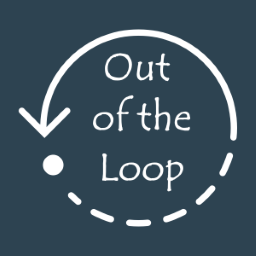

Every day until the Pandemic.
Cool, good for you (seriously). Do you honestly think they’ll say they’re against the freedom of the individual, or is it that you think they’re against it? Not saying you’re right or wrong, just asking if you’re describing what you think they’ll say, their own beliefs or the beliefs/consequences of their party. It’s an important distinction, especially when trying to engage in dialogue with them.
I’m just looking at what I’ve spent the past several months witnessing via news reporting and video clips.
Maybe I don’t follow enough news outside of Israel, but I do read quite a bit and there wasn’t anything about Zionism. Could you maybe link to one or two sources?
I’m not debating what the dictionary says about it.
I’m actually not debating at all, right now I’m trying to understand you, and I’m having some difficulties. My best guess is, you seem to have issues against the Israeli army and government (me too, btw), and somehow decided that’s Zionism. Zionism is more than a century old, and there are plenty of people who call themselves Zionists, yet don’t support all the IDF and the Israeli government did during the past few months (you’re talking to one right now, and Biden is another example). Do you think these people are wrong in what their opinions are? That they’re lying? That they’re not using the correct word, even though that’s the same usage as in the dictionary?









Wow, I just got and used a whetstone for the first time yesterday!
I’ll tell you what I did, with the understanding that I’m less knowledgeable than others in this post, but can probably better relate to your situation.
I’d also be happy to hear feedback from others.
I bought a dual King whetstone of 1000/6000 grit for a basic German knife that lost its edge after a few months of daily use. The 6000 side is probably overkill (King is made for Japanese knifes, which do require 6000 grit. 2000-4000 would do for a German knife), but the whetstone was at the correct balance of price, apparent quality and known brand.
I mainly used these two videos as guides:
https://www.youtube.com/watch?v=TkzG4giI8To
https://www.youtube.com/watch?v=tahaaHxhbsA
Using a marker to see if I’m holding the knife at the correct angle helped, thought I mostly used it to get my bearings. I didn’t bother with the whole 10, 8, 6 etc. stropping process, rather went a few times on each side, and tested it until the knife was able to cut through paper easily. Overall, I’d say it took me less than 10 passes on each side.
The main issue for me was forcing myself to hold the knife correctly and move my other hand to apply pressure at the right point (I was able to do it correctly, it just took a bit of work). I also had a hard time keeping the angle of the knife constant.
The whole process start to finish took me about half an hour, I’d say about 5-10 minutes were due to me being a noob.
When inspecting the edge, I noticed it was convex, which makes sense as the angle wasn’t uniform. From what I understand, this might actually be better than a straight V edge (the most common type), so… yay for me, I guess?
After finishing the knife easily passed the paper test, and cutting through a tomato was more a matter of placing the knife on top of the tomato and sliding it back and forth, allowing the edge to drop down and slice it. The knife is at least as sharp as when it was new, if not sharper. There is one spot where I think the edge isn’t as good, but I only noticed it because I was looking for issues and it isn’t noticeable with regular use. Overall I’m very happy with the results.